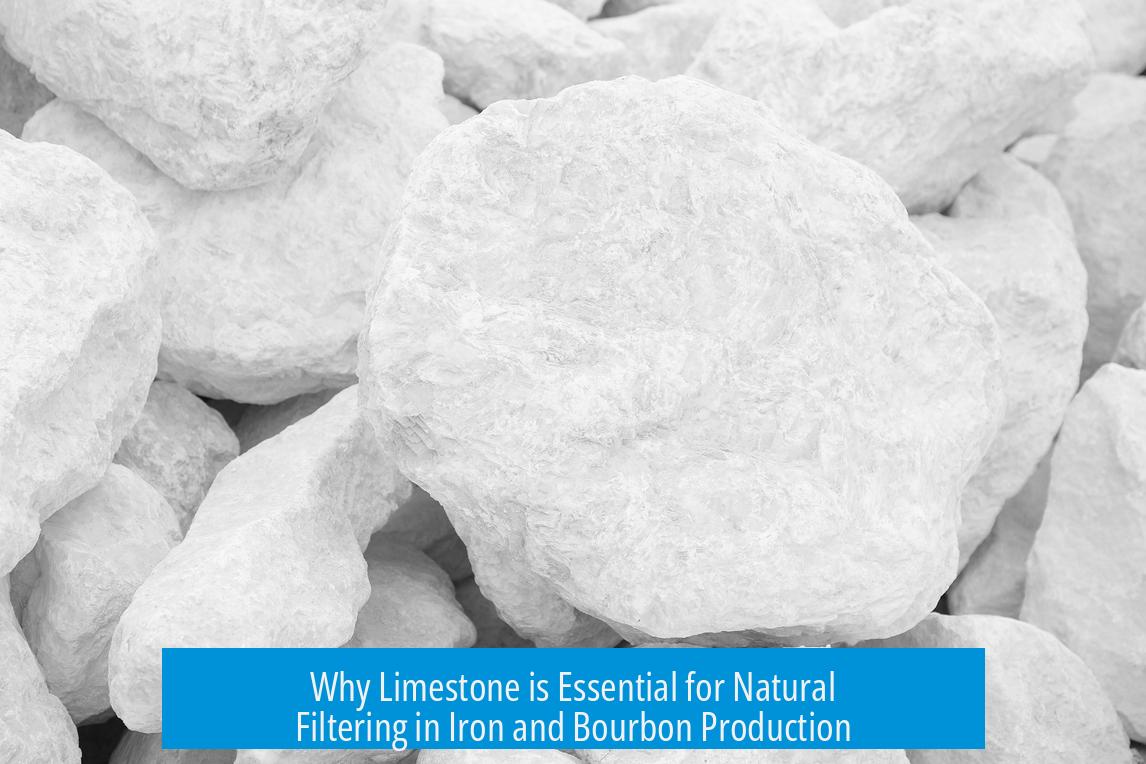Why Limestone is the Holy Grail of Natural Filters for Iron and Bourbon Making
Limestone plays a crucial role in natural filtration during bourbon production by chemically altering water to reduce iron content, enhancing yeast performance, and influencing the flavor profile. This makes it a preferred natural filter in the whiskey industry.
Chemical Interaction of Limestone with Water and Iron
Limestone increases the pH of water, making it mildly alkaline. This shift in alkalinity causes dissolved iron, specifically Fe(III), to precipitate out of the water as a solid. By converting iron from soluble to insoluble forms, limestone effectively reduces iron levels in water used for mashing and fermentation.
- Alkalinity promotes Fe(III) precipitation.
- Precipitated iron can be filtered or settled, improving water purity.
Impact of Iron Levels on Fermentation and Flavor Profile
Trace amounts of iron influence the growth of microorganisms in the mash. These microbes affect fermentation byproducts, which play a significant role in the flavor and aroma development of bourbon. Some iron naturally originates from grains, but excess iron from water can disrupt microbial balance.
Influence on Yeast Metabolism and Production of Volatile Organic Compounds
Saccharomyces yeast, the primary fermenting organism, is sensitive to mineral concentrations, including trace iron. Even parts per million of iron can change yeast metabolism, resulting in varied production of volatile organic compounds (VOCs). These VOCs significantly contribute to bourbon’s distinct aroma and taste.
Specific Benefits of Limestone in Brewing and Whiskey Making
Limestone supplies calcium and carbonate ions essential for mash chemistry. Calcium stabilizes enzymes and yeast cells, while carbonates buffer pH. Limestone’s ability to reduce harmful iron traces supports healthy yeast metabolism, similar to brewing processes.
Tradition, Preference, and Marketing
Though limestone filtration is not strictly essential, its use is deeply embedded in bourbon tradition. Distilleries often promote limestone-filtered water as part of their unique character and branding. This practice highlights both the filtration of impurities and the enhancement of mineral content, subtly affecting taste.
Chemical Mechanism and Open Questions
While the main process involves alkalinity-induced Fe(III) precipitation, detailed chemical pathways remain partially understood. Further research could clarify these mechanisms, but the practical effects are well recognized in the industry.
Key Takeaways
- Limestone raises water pH, precipitating and removing dissolved iron.
- Trace iron affects microbial growth and fermentation, shaping bourbon flavor.
- Yeast metabolism depends on mineral content; limestone benefits VOC production.
- Limestone provides essential calcium and carbonate ions for mash conditions.
- Its use combines practical filtration with tradition and marketing appeal.





Leave a Comment